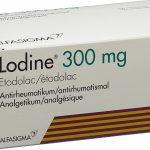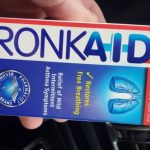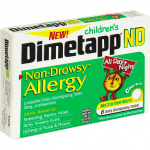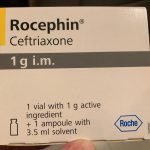Why Was Nabumetone Discontinued?
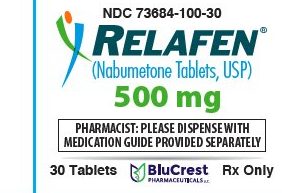
Nabumetone is a nonsteroidal anti-inflammatory drug (NSAID) that is used to relieve pain and inflammation associated with conditions such as osteoarthritis and rheumatoid arthritis. It is marketed under various brand names, including Relafen, Arthaxan, and Mebutan.
Nabumetone was developed in the 1970s by the Spanish pharmaceutical company, Llorente. The drug was first approved for use in the United States in 1991. It works by reducing the production of prostaglandins, which are chemicals in the body that contribute to pain and inflammation.
Nabumetone is unique among NSAIDs because it is a prodrug, meaning that it is inactive when taken orally and must be metabolized in the body to become active. This means that it is less likely to cause gastrointestinal side effects than some other NSAIDs, such as aspirin or ibuprofen.
Like all NSAIDs, nabumetone carries a risk of side effects, including gastrointestinal bleeding, kidney problems, and cardiovascular events such as heart attack and stroke. The risk of these side effects is increased in people who take high doses of the drug or use it for long periods of time
How Is Nabumetone Taken?
The dosages and frequency of use may vary depending on the condition being treated and the individual patient. It is important to follow the dosing instructions provided by your healthcare provider.
For the treatment of osteoarthritis and rheumatoid arthritis, the usual starting dose of nabumetone is 1000 mg taken once daily, either as a single dose or divided into two doses. The maximum recommended daily dose is 2000 mg, which may be taken as a single dose or divided into two doses. The medication should be taken with food or milk to help prevent stomach upset.
For acute pain or menstrual pain, the starting dose of nabumetone is typically 1000 mg taken once daily, either as a single dose or divided into two doses. The maximum recommended daily dose is 2000 mg, which may be taken as a single dose or divided into two doses. The medication should be taken with food or milk to help prevent stomach upset.
It is important to take nabumetone exactly as prescribed by your healthcare provider. Do not take more or less of the medication than prescribed, and do not take it more frequently than recommended. Taking too much nabumetone can increase the risk of side effects, including gastrointestinal bleeding, kidney problems, and cardiovascular events such as heart attack and stroke.
If you miss a dose of nabumetone, take it as soon as you remember. However, if it is almost time for your next dose, skip the missed dose and continue with your regular dosing schedule. Do not take a double dose to make up for a missed one.
As with all medications, it is important to discuss any questions or concerns you may have about nabumetone dosages or usage with your healthcare provider.
Why Was Nabumetone Discontinued?
Available records indicate that Relafen a brand of Nabumetone has been discontinued in the U.S. For business reasons. Nabumetone has come under increased scrutiny after it was reported that taking the drug comes with an increased risk of serious cardiovascular thrombotic events, myocardial infarction, and stroke, which can be fatal.
Nevertheless¸ generic nabumetone has not been discontinued by the FDA or any other regulatory agency. It is still available as a prescription medication for the treatment of pain and inflammation associated with conditions such as osteoarthritis and rheumatoid arthritis.
Medications may be discontinued by a pharmaceutical company for a variety of reasons. For example, a company may discontinue a medication if it is no longer profitable, if there is a lack of demand for the drug, or if there are safety concerns that cannot be addressed. However, I am not aware of any specific reasons why nabumetone would be discontinued at this time.
It is important to note that while nabumetone is still available, it may not be the best choice for everyone. Like all medications, it carries a risk of side effects and may interact with other medications or medical conditions. If you have questions or concerns about nabumetone or any other medication, it is important to speak with your healthcare provider. They can provide you with more information about the risks and benefits of the medication, as well as other treatment options that may be available to you.
Safer Alternatives To Nabumetone
There are several alternative medications that may be considered if nabumetone is not an appropriate choice for an individual due to safety concerns or other reasons. Some examples of alternative medications include:
1. Acetaminophen: Acetaminophen (Tylenol) is a common pain reliever that is available over-the-counter. It is generally considered safer than NSAIDs like nabumetone, although it may not be as effective for treating inflammation.
2. COX-2 inhibitors: COX-2 inhibitors, such as celecoxib (Celebrex), are a type of NSAID that may be less likely to cause gastrointestinal side effects than traditional NSAIDs. However, they may carry a higher risk of cardiovascular side effects.
3. Topical pain relievers: Topical pain relievers, such as creams, gels, or patches, maybe a good option for individuals who cannot tolerate oral medications or who have localized pain. These products may contain ingredients such as lidocaine or capsaicin.
4. Tramadol: Tramadol is a prescription pain reliever that is used to treat moderate to severe pain. It is not an NSAID and may be less likely to cause gastrointestinal side effects, although it can still carry a risk of other side effects such as dizziness and drowsiness.
5. Physical therapy: Depending on the underlying condition causing the pain or inflammation, physical therapy or other non-pharmacological treatments may be recommended as an alternative or complementary option.
It is important to discuss any concerns about nabumetone or other pain relievers with your healthcare provider. They can help determine the most appropriate treatment options based on your individual needs and medical history.

